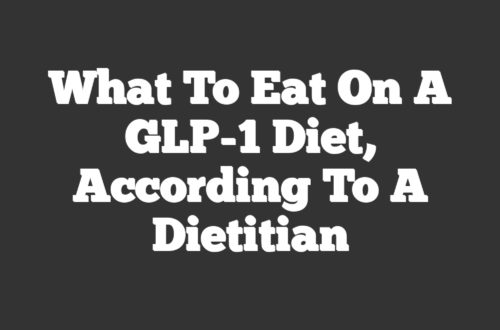
It is because vitamin deficiency may affect metabolic processes and the body’s ability to shed fat that you may need to take enough vitamins for weight loss (1), (2). The solution is to either consume vitamin-rich foods or take supplements to cover micronutrient deficiencies. This should help you lose weight and make you feel alert and energetic. Keep scrolling to know which vitamins can help you burn fat, along with a list of minerals to focus on and precautions to take. Swipe up!
Vitamins For Weight Loss
1. B Vitamins
B vitamins play a crucial role in boosting metabolism. Scientists have found that these vitamins could prevent weight gain and improve energy metabolism-related enzyme activities (3). There are several B vitamins:
- Thiamine (Vitamin B1)
- Riboflavin (Vitamin B2)
- Niacin (Vitamin B3)
- Pantothenic acid (Vitamin B5)
- Pyridoxine (Vitamin B6)
- Biotin (Vitamin B7)
- Folate (Vitamin B9)
- Cobalamin (Vitamin B12)
Consume leafy green vegetables, beans, eggs, meat, fish, poultry, dairy products, and B vitamin-fortified cereals and bread (4). Vitamin B12 is mainly found in meats, and if you are vegetarian or vegan, you may have to take supplements. The best way is to consult a doctor, test for B vitamin deficiencies, and tweak your diet or take supplements as suggested. Alongside these vitamins, metabolism-boosting foods can further support your weight loss goals.
2. Vitamin D
The next important vitamin to fast-track your weight loss process is vitamin D. It is known as the sunshine vitamin, as it gets synthesized when you are out in the sun. However, there has been an exponential increase in cases of vitamin D deficiency in the recent past (5). This fat-soluble vitamin is responsible for good bone health and protecting the liver. Vitamin D deficiency has been associated with autoimmune diseases, depression, cancer, diabetes, and cardiovascular diseases (6).
Several studies found a correlation between vitamin D intake and weight loss. It was observed that vitamin D deficiency was prevalent in people with obesity. Improved vitamin D levels and a weight loss diet may reduce BMI, body weight, hip circumference, weight circumference, and inflammation in people with clinical obesity (7), (8). According to data from the National Health and Nutrition Examination Survey (NHANES) covering the period 2017 to March 2020, vitamin D supplement usage in the United States is notable. Among the surveyed population of 9,924 adults aged 20 and over, 18.5% reported using vitamin D supplements in the past 30 days. Interestingly, vitamin D supplement use was more prevalent among non-Hispanic Asian and non-Hispanic White adults compared to Hispanic and non-Hispanic Black adults. Talk to your doctor to see if you need vitamin D supplements. Also, go out for a 10-minute walk in the morning to help your body synthesize vitamin D. For those aiming to lose weight naturally, optimizing your vitamin D levels could be a significant factor. However, there are many natural remedies that you can use to lose weight naturally, such as aloe vera, cinnamon, curry leaves, etc., that you can use apart from working on your vitamin D levels.
3. Vitamin C
Vitamin C is a water-soluble micronutrient and antioxidant mainly found in citrus fruits. Other sources of vitamin C are berries, bell peppers, chili, broccoli, cabbage, cauliflower, Brussels sprouts, tomato, spinach, and potato (9). Scientists believe that consuming antioxidants like vitamins C and E may help reduce oxidative stress and the risk of obesity and type 2 diabetes (10).
A study showed that adequate levels of vitamin C in the body could help oxidize 30% more fat during moderate-intensity exercise (11). This may help in weight loss. In a review published by the University of Chile, researchers speculate that vitamin C intake may reduce high blood sugar levels and inflammation and break down fat cells (12).
These three vitamins regulate different metabolic processes in the body to help with effective weight loss. There are other nutrients that may play a vital role in preventing weight gain and aiding weight loss. Let’s take a look at them.
Mineral Supplements For Weight Loss
1. Calcium
Calcium is important for maintaining bone health and may help with weight loss. Scientists have found that taking calcium and vitamin D3 supplements for 12 weeks could reduce body fat and visceral (belly) fat and improve metabolic health (13).
Another study found that a calorie-restricted diet and increased dietary calcium intake could improve fat loss (14). A study published by the American Society for Nutrition evaluated the possible link between calcium intake and body fat. As per the study, increasing calcium in the diet from 0.1% to 2.0% minimized weight gain in both lean and fatty Zucker rats ( 15). Moreover, there are reports where people did not see any significant changes in weight or fat after taking calcium supplements. Therefore, it is advisable to check with your doctor and follow the recommendations.
2. Iron
Iron deficiency is often associated with obesity. Multiple studies found that obesity might disrupt iron homeostasis, leading to iron deficiency anemia, and losing weight may improve the iron profile in people with obesity (16), (17), (18). A mice study found that iron supplementation could prevent high-fat diet-induced weight gain and fat accumulation in the liver (19).
The effect of iron supplements on obesity is still unclear. Therefore, it is best to consult a doctor and check your iron status before taking supplements. You may also up your iron intake by consuming iron-rich foods like dates, raisins, dark leafy greens, beans, and meat.
3. Magnesium
Magnesium is an essential mineral that helps maintain heartbeat, bone health, immune system, blood glucose levels and helps produce energy and protein (20). You can source magnesium from vegetables, fruits, nuts, seeds, fish, milk products, and unprocessed cereals (21).
Unfortunately, magnesium deficiency is prevalent in people with obesity, type 2 diabetes, and other metabolic syndromes. Increasing magnesium intake helps improve metabolic syndrome by reducing blood pressure, high blood sugar, and high triglyceride levels (22), (23). A study found that magnesium supplementation could reduce BMI in people with magnesium deficiency, insulin resistance, and obesity. Researchers also observed some changes in body weight and waist circumference in a few participants (24). According to a study published in The British Journal Of Nutrition, alternative and complementary treatments, such as weight loss supplements, have recently become popular. For instance, magnesium supplements have anti-obesity properties. However, further studies are required to prove the long-term efficacy and effective dose of Mg supplementation (25).
3. Chromium
Chromium is a trace mineral that plays a role in insulin function and the metabolism of carbohydrates in the body (26). In countries like the USA and parts of Europe, chromium supplements are popular slimming aids. Research suggests that this mineral may aid weight loss by increasing the lean body mass and decreasing the fat percentage in the body. However, most of these results are only supported by animal studies (27). Another research paper suggests that chromium may suppress your appetite that may play a role in weight loss. However, it may also lead to mild side effects like weakness, nausea, headache, watery stools, dizziness, and vomiting and should therefore be only consumed after consulting a physician (28). Additionally, even if chromium produces any weight loss effects, they may be small compared with those of a well-balanced diet and exercise. So, it is recommended to consume chromium-rich foods like broccoli and shellfish rather than supplementing on it.
Consult a doctor to check your vitamin and mineral levels and if you have any deficiencies. The doctor may ask you if you have noticed any health-related issues or symptoms, what you consume daily, and to take a blood test to check nutrient levels.
These vitamins and minerals accelerate your metabolism and contribute to your weight loss goals. However, before you rush to the pharmacy to get your supplements, here are a few precautions and tips to keep in mind.
Precautions And Tips
- Take supplements only after consulting your doctor.
- Do not take supplements that you are allergic to.
- Consume a balanced diet. Focus more on whole foods to get your daily dose of vitamins and minerals. Incorporate superfoods for weight loss, such as green tea, blueberries, etc., to enhance your results.
- Exercise regularly. Do a combination of cardio and strength training.
- Stay away from junk food loaded with trans fats and saturated fats.
- Drink at least eight glasses of water per day.
- Indulge in activities that help keep the stress away.
- Sleep for at least 7 hours per night.
Prepare and plan your meals in advance, ensuring they are balanced and nutritious. Having a meal plan can reduce the likelihood of impulsive, unhealthy food choices.
Your body needs certain minerals and vitamins for weight loss as they play a crucial role in metabolic processes. Vitamins B, C, D, and E enhance metabolism, thus helping the body get rid of excess fat. However, solely supplementing vitamins and minerals won’t contribute to the cause, as your diet and physical activity also have a huge role to play in weight loss. Eat healthy, practice portion control, work out every day, and get enough sleep to witness effective results. Do not take any supplements without consulting your doctor.
Frequently Asked Questions
Do vitamins make you fat?
No, vitamins are low in calories and don’t make you fat. However, certain vitamin deficiencies may lead to weight gain.
When is the best time to take vitamins?
Morning and mid-day are usually the best time to take most vitamins, multivitamins, and prenatal vitamins as well. You may take vitamin C any time of the day.
While no supplement is a magical solution for weight loss, adhering to the calorie balance principle remains key to effective weight management. Check out the video below for more insights from an expert in nutrition to support your weight loss journey!
Key Takeaways
- Vitamin deficiencies can slow down weight loss and negatively affect the body’s fat-shedding capability.
- Vitamins B, C, and D and minerals like calcium, iron, and magnesium accelerate weight loss by boosting metabolism.
- A balanced diet, adequate hydration, regular exercise, and prescribed supplementation of vitamins and minerals can help shed the extra pounds.




